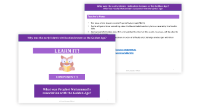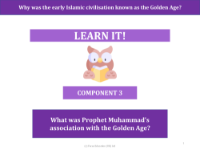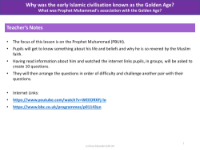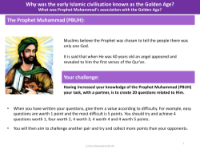The Prophet Muhammad (PBUH) - Info Pack - Islamic Civilisation - Year 5
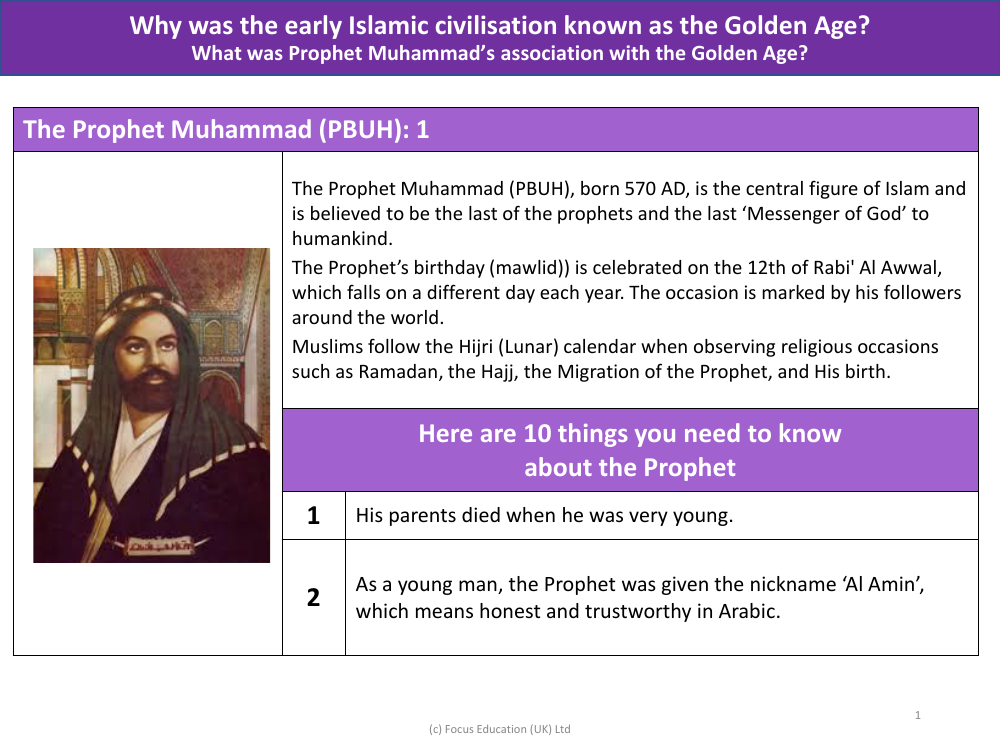
History Resource Description
The Prophet Muhammad (PBUH), an eminent figure in Islam, was born in 570 AD and is honoured as the last prophet and 'Messenger of God' to humankind. His life and teachings are central to the Islamic faith, and his birthday, known as Mawlid, is celebrated on the 12th of Rabi' Al Awwal every year, with the date varying annually due to the Hijri (Lunar) calendar. This calendar is also used to determine the dates for other significant Islamic events such as Ramadan, the Hajj pilgrimage, and the Prophet's migration. Among the key facts about the Prophet is that he was orphaned at a young age and was known for his honesty and trustworthiness, earning him the nickname 'Al Amin' in his youth.
Prophet Muhammad's life was marked by humility and a commitment to equality and education. He engaged in household chores, valued prayer, and saw potential for friendship and alliance in every individual, urging his followers to embrace forgiveness. His practice of sealing letters with an engraved ring that placed the name of 'Allah' above his own symbolises his devotion. The Prophet advocated for equal rights, regardless of gender, race, or religion, and supported the pursuit of knowledge for all Muslims. His name, Muhammad, remains one of the most popular boys' names in the UK and is also widely used worldwide. He cautioned that some might misuse the name of Islam to justify wrongful acts. His legacy is closely tied to the period known as the Golden Age of early Islamic civilisation, a time renowned for its advancements and enlightenment.
